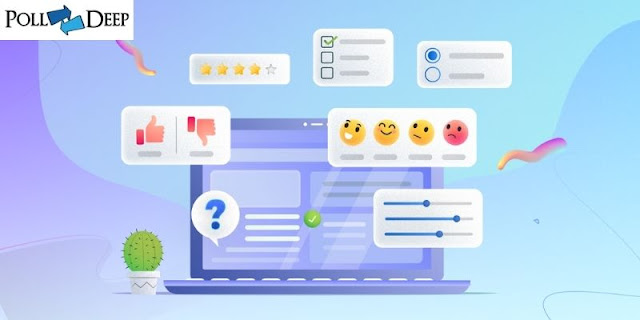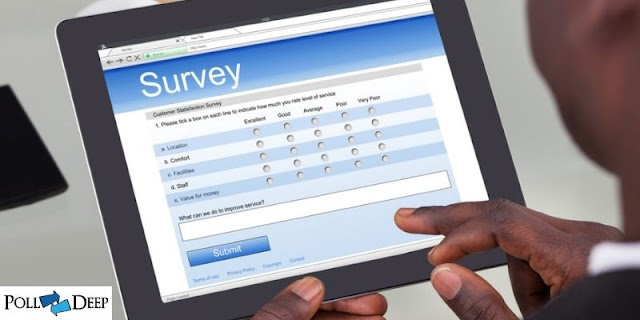Every company or business has different marketing goals. Based on the goals, they follow up with a unique marketing approach. Every business follows a different path to reach out to its customers. Businesses are distinct - some are B2B(Business To Business), B2C(Business To Customers), and C2C(Customers To Customers). When the business is unique, there will be a difference in the target audience, business strategies, marketing strategies, and surveys. It makes sense that when the business approach is unique, the online surveys will be different. All types of businesses use online surveys to gauge the preferences of their target audience.
Based on the result, crucial business activities take place.
So what is the difference between B2B and B2C surveys?
The distinction between the two survey types includes various parameters. These are the survey methodology, sampling sizes, proper design approach, time consumption, response rate of the customers, and overall cost. These parameters will help you understand how the two surveys are different from each other. It will set the survey goals, expectations from the survey, and market research.
Before you know the differences, understand B2B and B2C survey types.
What Do You Mean By B2C Survey?
In business to customer surveys, the organizations aim to reach a general audience (public).
The general audience includes the people who buy your products and use your services.
While creating and designing the B2C surveys, include questions based on product quality, experience, price worth, and more. In this type of survey, the objective is to get feedback that improves business sales.
Moreover, you can use the results to improve business strategies, decisions, and marketing. Through the B2C survey, it becomes easy to know the routine shopping habits of the customers and their preferences.
What Do You Mean By B2B Survey?
Organizations that cater to business professionals use B2B surveys. With this survey result, it becomes easy to gauge the interest of the professionals in specific services/products. In such surveys, the target audience is narrow.
You need to be very cautious while creating the B2B surveys. Besides providing products and services to professionals, you can change offerings or provide solutions to business problems.
Now, you have understood what the surveys mean. Let us know the 7 points that differentiate between B2B and B2C surveys.
1. Target Audience/ Sample Size Of The Survey:
In B2C, you can approach everyone and anyone who you consider to be a customer or can be the customer. In simple terms, the sample size of the B2C survey is higher than B2B. B2B is specific while reaching out to only business professionals. These business professionals belong to organizations or niches.
2. Response Rates Of The Surveys:
B2C survey has a higher response rate as you share the survey with an infinite number of people. Whereas, the B2B survey will have a lower response rate. When the sample size is small, the response rate will be lower.
3. Maintaining The Fun Factor In The Survey:
You can include fun factors in a B2C survey but not in a B2B survey. B2C survey requires high-level engagement from the customers. With engagement, the businesses can interact with the audience and gauge their opinions. Moreover, fun factors increase the response rate and accuracy of the feedback. The fun factor is not essential for the B2B survey. You need to ask direct questions and get responses to them.
4. Rewards In The Survey:
In B2C surveys, the rewards are straightforward. Based on specified criteria, the customers get coupons, free gifts, cash cards, and more. Whereas in B2B surveys, the incentive procedure is a bit different. In B2B surveys, the rewards take the form of free product demos, seminars, webinars, and other exclusive offers.
5. Cost Included In The Survey:
The overall cost of the B2B and B2C survey will depend on a number of factors. Usually, B2C surveys are more expensive than B2B surveys. It is because of the large target audience. Sharing the surveys and rewards on a large scale makes the B2C survey expensive. In a B2B survey, you have to cater to a smaller audience which makes it easy and affordable.
6. Timing
When you post a survey online, you need enough time to get maximum feedback. It means that you need to provide at least 6 to 7 days' time for a B2C survey. Sharing the survey on multiple platforms and getting feedback will require time. For B2B surveys, the target audience is defined. So it will not take much time to get feedback from business professionals.
7. Methodology:
B2B and B2C surveys have different target audiences and objectives. Therefore, the surveying technique will differ. You can be creative with the B2C surveys. But for B2B, you always have to choose a professional approach.
Summary:
Online surveys take different forms to suit varied businesses. You cannot assume one-side-fits-for-all for the online surveys. Every business has varied requirements and approaches. You need to consider them before you choose an online survey. Understanding the difference between the surveys is the first step. Once you are clear, rest is easy.



No comments:
Post a Comment